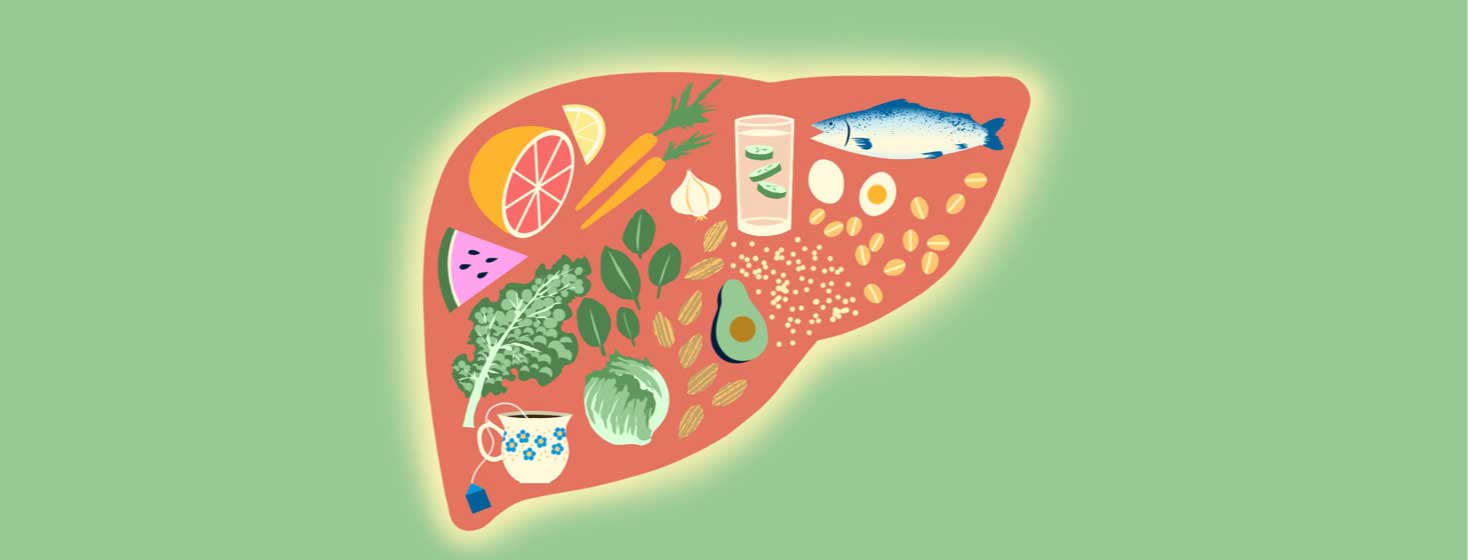Supporting Your Liver for Endometriosis
Your liver plays a crucial role in the balance of your hormone levels.
The liver is responsible for packaging up used estrogen and delivering it to the gut, ready to be removed through our bowel movements. This system occurs daily, which is why it’s so important to have daily bowel movements but also to support our liver function.
Liver health and endometriosis
When the liver is struggling, estrogen is typically one of the first waste products to be put on the back burner, creating a build-up of estrogen. This can, of course, exacerbate endometriosis symptoms and worsen other estrogen-associated conditions like fibroids.1
Thankfully, there are numerous ways to support your liver, and I have listed a couple of them below.
Balance blood sugar
This is not always an obvious one when we think about the liver, but it is a crucial one. When we consume too much glucose (this could be in the form of sugar, refined carbs, or simply a carb-heavy meal that’s not well-balanced), the body releases a hormone called insulin. Insulin rapidly stores these excess glucose molecules away in the liver and fat cells. When this happens repeatedly, the liver begins to struggle, and function becomes impaired. Eventually, this may contribute to non-alcoholic fatty liver disease.2
There are three foundational steps to balancing blood sugar and keeping glucose and insulin spikes down. They are:
• Minimize added sugar
• Reduce and be mindful of refined carbohydrates like cereals, bread, pizza, crisps, etc.
• Include healthy fat, fiber (from vegetables and fruit), and protein at every meal and snack.
If you want to learn more about blood sugar and how to balance it, read my other article on this subject.
Lower your toxic burden
The liver’s main role is to remove waste products from the body, especially harmful ones.
Imagine you were in a factory warehouse, and the factory was full of huge tanks of gasoline and piles of wood. Now imagine a fire breaks out. There are better and safer things to do in this situation – but to demonstrate my point, which flammable material would you remove first? The gasoline or the wood? I would imagine the gasoline, right? Both are serious threats, but the gasoline is explosive and can potentially cause more damage much quicker.
That’s kind of what your liver has to do when it’s faced with too many chemicals and harmful waste products. It has to choose between estrogen and chemicals from medications, alcohol, environmental pollutants, endocrine-disrupting chemicals from body and beauty products, and so on. Your liver ‘knows’ estrogen needs to be cleared and that leaving it to build up isn’t a great idea, but it must get out of the more toxic waste materials first.
Helping your body ease toxic burden
So, what can we do to help it out? There are lots of ways to ease our toxic burden. Here are a few suggestions:
• Eat organic as much as possible to lower pesticide exposure
• Use toiletries which have minimal or no endocrine disruptors and harsh chemicals like parabens
• Use non-toxic cleaning products or make your own
• Reduce your exposure to plastic, so for example, don’t heat food in plastic containers, store food in glass, avoid plastic bottles, etc.
• Minimize alcohol consumption
These changes often take some time and can be expensive, so I suggest you begin with what feels easiest to you. For example, can’t afford to eat totally organic? Just focus on the dirty dozen and don’t worry about the rest.
Don’t replace all your toiletries at once. Just replace as products run out, etc.
Eat well
Finally, we want to focus on eating a nutrient-dense diet. The liver uses a heap of vitamins, antioxidants, minerals, amino acids, and more when cleaning out waste products, and without these essential nutrients, it’ll begin to struggle. Some of the key nutrients it requires includes B vitamins, glutathione, and amino acids, but there are many, many more.
A diet rich in colorful herbs, spices, fruits and vegetables, and dark leafy greens will help provide the liver with the antioxidants and B vitamins it needs. The more color, the better!
To support amino acid levels, we can focus on a range of good quality protein sources, including pasture-raised eggs, grass-fed organic meat, low-mercury fish, beans, nuts, seeds, and whole grains. Thankfully, these protein sources also provide good levels of B vitamins.
Finally, glutathione production requires sulfurous foods like good quality eggs and chicken, cruciferous vegetables, garlic, and onions.

Join the conversation